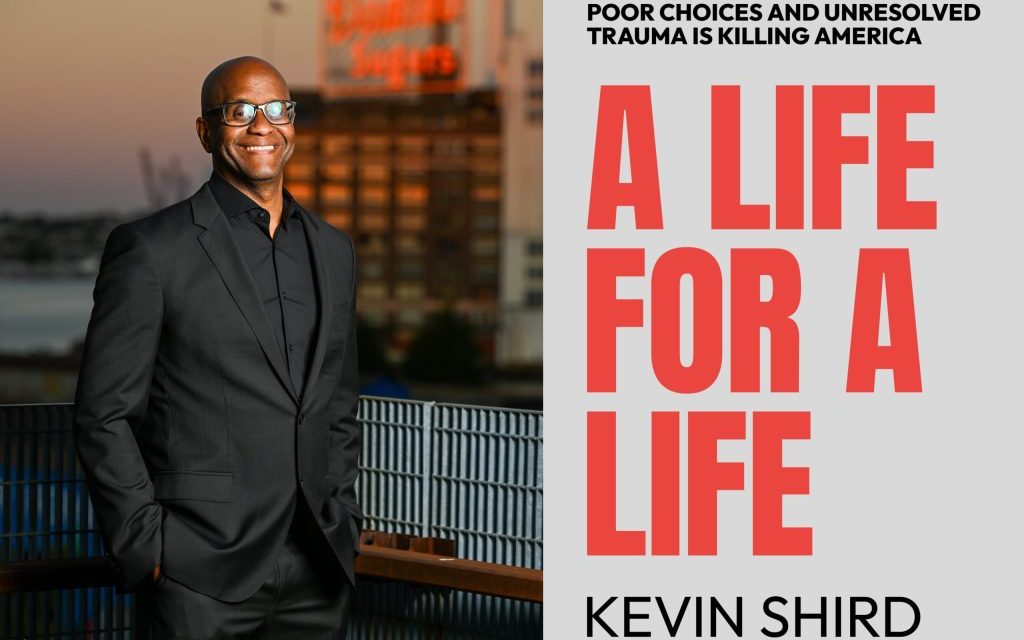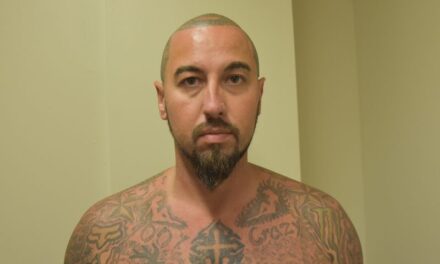By Andrea Stevens
AFRO Staff Writer
astevens@afro.com
After a decade in the making, author Kevin Shird has completed his memoir, a deeply personal exploration of the lasting effects of violence and redemption. His book delves into his experiences with incarceration, his struggle with post-traumatic stress disorder (PTSD) and the broader issues of mental health in the Black community.
“We have to normalize mental health support in the Black community. Self-medicating isn’t the answer—just like Happy Hour is not a mental health counseling session,” said Shird.

Shird’s inspiration stemmed from the shocking discovery that his former cellmate had committed a double homicide. His research into the case, aided by court records, led him to examine the link between mental health and violence.
“My cellmate had big plans for when he got out. Years later, I found out he committed a double murder. I needed to understand why,” said Shird. “We all get angry, we all say things in the heat of the moment, but what makes someone actually go through with murder? That question took me down a rabbit hole.”
Throughout the writing process, Kevin had to confront painful memories from his past. The emotional toll of recounting violent experiences, including a shootout in West Baltimore, led him to discover that he was dealing with PTSD.
“By discussing his PTSD, Kevin helps others understand the importance of mental health support,” said Dr. Johnny Rice, an associate professor in the Department of Criminal Justice at Coppin State University and a colleague of Shird. “Most individuals who are incarcerated will reenter society, and we must ask if they’ll come out better or worse.”

This revelation deepened Shird’s understanding of the trauma that he, and many others, had suppressed for years.
“We have to stop walking around in pain. If you wake up with a toothache, you call a dentist. But if you wake up anxious or depressed, why don’t we call a mental health professional?” said Shird.
When Kevin was released from prison, he found work as a case manager at a community support center, where he helped low-income individuals access earned income tax credits. His new job was in stark contrast to his former life of drug dealing. He often found himself reflecting on the change, realizing how much his own life had shifted.
“I was making $20,000 a day selling drugs, and then I found myself working for $9 an hour helping people file taxes. That was humbling—but it was also the start of something real.”
Kevin is now using his book to advocate for better mental health resources in underserved communities and for those who have been incarcerated. He hopes to raise awareness about the importance of mental health counseling and normalize the act of seeking help, particularly within the Black community. He also plans to work with legislators to create policies that make mental health services more accessible to those who need them most.
“Seeing Kevin in the classroom sharing the lived experience both of us grew up in Baltimore, and Kevin, as someone formerly incarcerated, has been able to show our scholars that change is possible, but also change takes work,” said Dr. Rice.
His story serves as both a personal reflection and a call to action, highlighting the importance of mental health care, education, and community support. By sharing his journey, Kevin hopes to inspire others to seek help and make lasting change in their own lives.
The post Writing Through Trauma: How one man is using his story to inspire change appeared first on AFRO American Newspapers.











